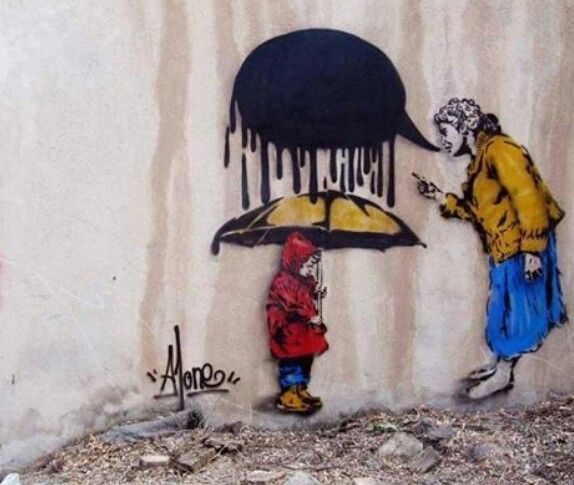By Amber Warner
The handmark glowed red, calling me every name in the book.
I had slapped my toddler. I was a monster. I was a horrible mother. I didn’t deserve her. Her eyes had widened, filled with terror and her screams grew louder.
I glued my hands to my side, appalled that I had hurt my child. I was everything that I had been told that I would become—a child abuser.
The memory of what had provoked this act of violence escapes me. I remember that my second daughter was only a couple of months old. I know that I was recovering from a vertical cesarean; stapled from my belly button to my pelvis. My husband was working long hours. I was overwhelmed.
But none of that really mattered. I had lost control and hurt my child.
As far back as I know my family history, child abuse has been a theme. My biological mother told me of my grandmother being beaten so horribly that Great Grandmother didn’t know if she was going to make it into the morning.
My mother married an abusive man who fathered me. She informed me that I had been thrown in the trash as an infant. Luckily, she heard me crying.
That was the beginning of the nightmare that I would experience.
After serving time in the Michigan foster care system, I (along with my three younger siblings) was adopted. This really should have made for some kind of happy ending. It wasn’t.
Rather, my adoptive mom mentioned that she too, had come from an abusive background. She never really shared the specifics—probably to spare us. However, at times putting up with four children with a horrific past made for some less than great parenting moments.
Counseling was frowned upon, asking for help was a sign of weakness. Feelings and fears weren’t to be discussed. It didn’t matter that my new brother was having my sister come into his room at night. Or that my new sister liked to play “wedding night” with me.
Those incidents were swept under the rug, never to be discussed.
It wasn’t all horrible—I have a lot of happy memories of family vacations, of long summer days spent by a pool with a book. It is just not an easy job to mesh broken people into families.
Looking back, I understand my adoptive mom’s fear. I understood that she was doing the best that she could with the broken pieces that she had accepted.
Through all of this, I had never learned to parent. I married my husband at the age of 19 and had our daughter at the age of 20. I’d gone straight from a damaged 18 year old, to wife, to immediately a mother. I had only the vaguest idea of how to care for myself, let alone a child.
And now there I stood with a hand print on my little girl’s cheek. I was a monster. This couldn’t happen again.
Her porcelain cheek didn’t match the color of foundation that I used in hopes to cover up the mark. Her blue eyes and megawatt smile tried to cheer me.
But I was angry.
This could never ever happen again. I raised my hand to try to dry her tears, only to recognize her instinctive flinch.
The change didn’t happen over night but I didn’t slap her again. I had to learn how to handle the overwhelming stress of an infant, a toddler and a working husband. The first step was to realize that I didn’t know how to voice my emotions. I didn’t know how to ask for help.
My husband stepped in, taking the infant at night into the living room with him, allowing me to sleep.
I met a new friend who told me it was okay to tell the toddler no. And follow through and that time outs were also okay. That sometimes just laying the baby in the crib and walking into a different room when one was overwhelmed was not the end of the world. That I wasn’t really a horrible mother, I just didn’t know how to handle the demands.
The girls are now 14 and 10. They’re happy and well adjusted. The oldest doesn’t remember the slap.
Sometimes I yell and she stomps off. She and her sister agree that I’m the worst mom on the face of the planet. Then giggles erupt from their room.
I laugh.
In this household, the abuse has stopped.
Amber Warner is a recovering people pleaser attempting to succeed at life. She is happily married raising two daughters.
Photo: (source)
Editor: Dana Gornall
Comments
- Zen Buddhism and the Blues - April 5, 2024
- Escaping from Jehovah’s Witnesses through a Buddhist Path - March 24, 2024
- Getting to Know Holly Herring - February 29, 2024





